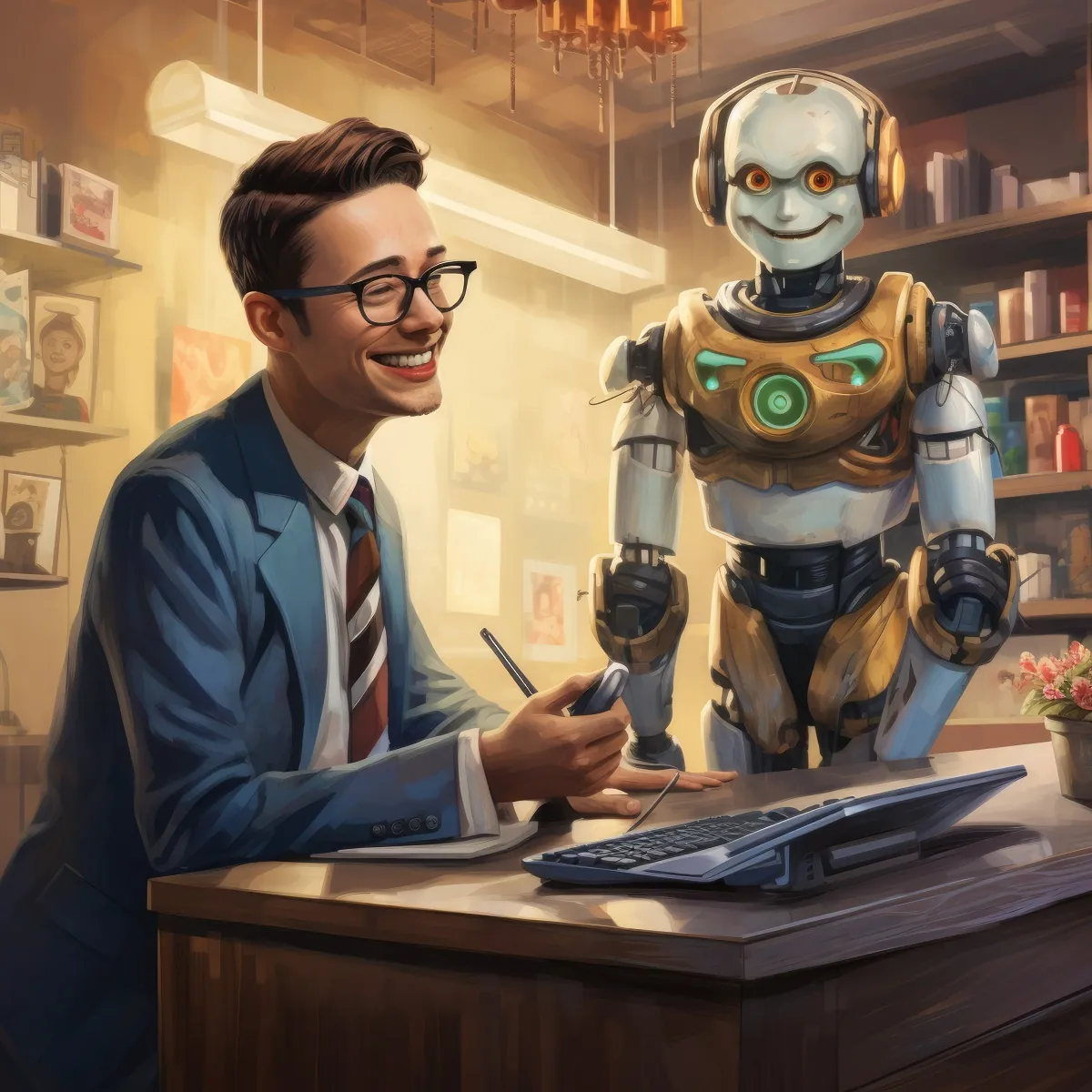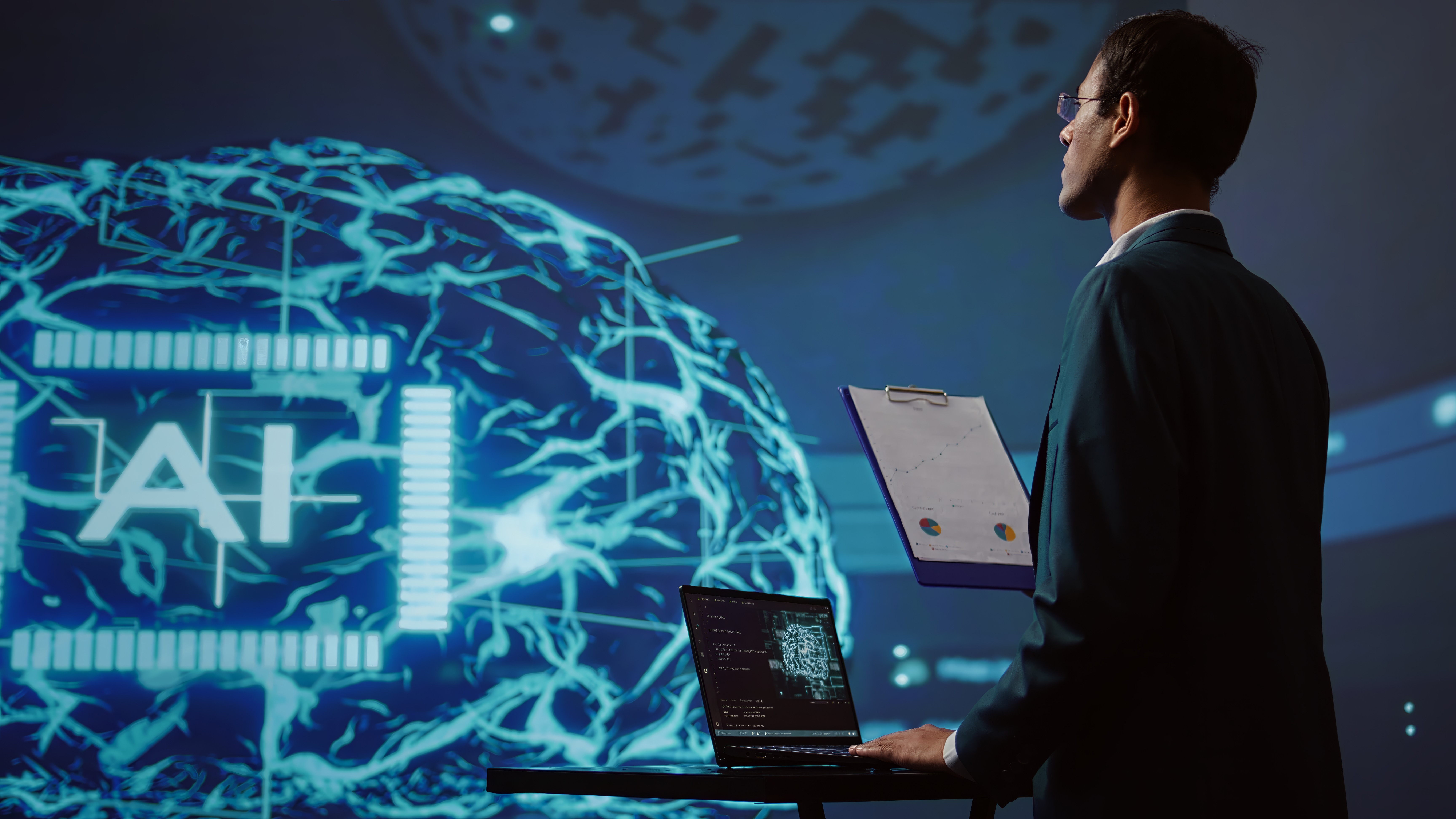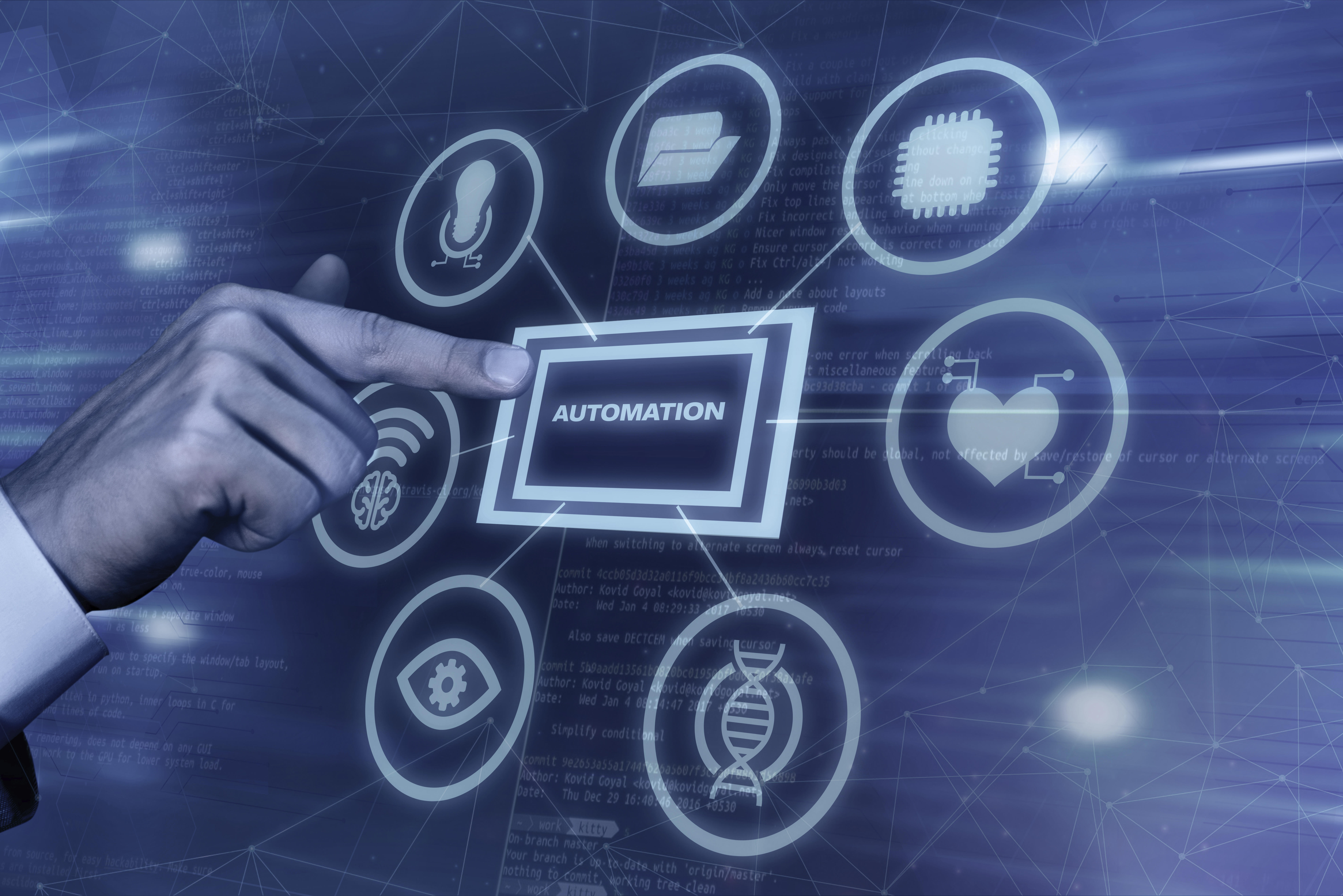AI as a Career: Top Roles, Skills, and How to Get Started
Why Choose AI as a Career?
Artificial Intelligence (AI) refers to the ability of machines to perform tasks that typically require human intelligence. These tasks include learning from data, recognizing patterns, understanding language, making decisions, and even solving complex problems. AI systems are built using algorithms and models that improve through experience, allowing them to adapt and perform more efficiently over time.
AI is no longer a futuristic concept—it’s a thriving field transforming industries worldwide. From healthcare and finance to retail, transportation, and education, AI is being used to automate tasks, gain insights from data, and create innovative solutions. For example, hospitals are using AI to assist with diagnostics, while retailers use it to personalize customer experiences. This widespread adoption has led to an increased demand for skilled professionals who can develop, manage, and apply AI technologies effectively.
The Rapid Growth and Demand for AI
According to recent reports, the global AI market is expected to grow significantly in the coming years, driving job creation across various roles like AI engineers, data scientists, machine learning specialists, and AI ethicists. Companies are looking for individuals who not only understand the technical side of AI but also its ethical and business implications.
Why Now is the Right Time
There has never been a better time to consider AI as a career. With more accessible learning resources, online courses, and supportive communities, breaking into the AI field has become more achievable—even for beginners. Governments and educational institutions are also investing in AI initiatives, further expanding opportunities in research and industry.
The field is dynamic, constantly evolving, and offers the chance to work on cutting-edge projects that can make a real-world impact. For those with curiosity, creativity, and a passion for technology, AI offers a future-proof and fulfilling career path.
What Does “AI as a Career” Mean?
What It Means to Work in AI
Pursuing AI as a career involves more than just writing code or building robots. It means working at the intersection of computer science, data, and human intelligence to create systems that can learn, reason, and make decisions. AI professionals may focus on developing algorithms, training machine learning models, designing neural networks, or applying AI to solve real-world problems. Roles in this field range from AI researchers and data scientists to machine learning engineers and AI product managers.
Whether you're designing self-driving cars or improving voice recognition systems, a career in AI is about leveraging technology to enhance and automate human tasks.
Companies Hiring AI Professionals
AI professionals are in high demand across a wide spectrum of companies. Leading tech giants like Google, Microsoft, Amazon, and IBM are continuously investing in AI talent. However, it’s not just large corporations—start-ups, mid-sized enterprises, and even government agencies are hiring experts in AI. Consulting firms, research institutions, and universities are also key employers for those looking to contribute to cutting-edge innovation or academic research.
Many companies value a multidisciplinary background, seeking candidates who can combine technical expertise with industry-specific knowledge.
Key Industries Embracing AI
AI is transforming almost every major industry. In healthcare, it’s being used for diagnostics, predictive analytics, and personalized medicine. In finance, AI powers fraud detection, algorithmic trading, and customer service chatbots. The technology sector uses AI to drive innovation in software development, cloud computing, and cybersecurity. Retail, automotive, manufacturing, and education are also rapidly integrating AI to streamline operations and enhance user experiences.
Because of this broad applicability, professionals with AI skills can explore a wide range of roles across sectors, making the field both versatile and future-ready.
What are the Top Roles in AI as a Career?
AI Engineer
An AI Engineer builds and deploys AI models and systems that can perform intelligent tasks such as image recognition, speech processing, or decision-making. This role typically requires strong programming skills, a solid grasp of machine learning algorithms, and experience with frameworks like TensorFlow or PyTorch.
Machine Learning Engineer
Machine Learning Engineers focus specifically on creating algorithms that allow machines to learn from data. They design and optimize models for tasks like recommendation engines, fraud detection, and predictive analytics. Their work is critical to building systems that improve over time.
Data Scientist
Data Scientists analyse large volumes of data to extract meaningful patterns and insights. In the context of AI as a career, they often develop machine learning models and use statistical techniques to guide business strategies and product development.
AI Researcher
AI Researchers are at the forefront of innovation, exploring new algorithms, architectures, and approaches to improve the capabilities of artificial intelligence. Their work often contributes to academic publications, patents, and long-term breakthroughs in the field.
NLP Engineer
Natural Language Processing (NLP) Engineers develop systems that understand and generate human language. Their work powers chatbots, virtual assistants, sentiment analysis tools, and machine translation services.
Robotics Engineer
Robotics Engineers integrate AI into physical machines, enabling them to perceive their environment, make decisions, and perform tasks autonomously. This role is especially vital in manufacturing, healthcare, and autonomous vehicles.
AI Product Manager
AI Product Managers bridge the gap between technical teams and business goals. They oversee the development of AI-powered products, ensuring they meet user needs while aligning with company strategy.
AI Ethicist and Policy Analyst
These professionals address the ethical, social, and legal implications of AI. They help develop guidelines, shape policy, and ensure AI technologies are used responsibly and fairly.
What are the Essential Skills for AI as a Career?
Programming Skills
Languages like Python and R are widely used in the AI community due to their simplicity and the availability of powerful libraries. Python, in particular, supports frameworks like TensorFlow, PyTorch, and Scikit-learn, which are essential for developing AI and machine learning models.
Machine Learning and Deep Learning
Understanding the core principles of machine learning and deep learning is key to building intelligent systems. This includes knowing how algorithms like decision trees, support vector machines, and neural networks work, and how to train models using large datasets. Deep learning, which uses layered neural networks, is especially important for tasks involving image recognition, speech processing, and advanced natural language understanding.
Data Analysis and Statistics
AI relies heavily on data. Knowing how to analyse, clean, and interpret data is essential for building accurate models. A solid understanding of statistics helps professionals make sense of data distributions, identify trends, and evaluate model performance. These skills ensure AI systems are both effective and reliable.
Knowledge of Specialized AI Domains
To succeed in the field, it’s important to be familiar with advanced topics like neural networks, natural language processing (NLP), and computer vision. NLP focuses on enabling machines to understand and generate human language, while computer vision involves interpreting and processing visual data. These areas are central to many AI applications, from chatbots to self-driving cars.
Problem-Solving and Critical Thinking
Beyond technical skills, problem-solving and critical thinking are vital. AI professionals must be able to approach complex challenges creatively, evaluate different solutions, and make decisions based on data. These skills are essential for developing innovative AI solutions that address real-world problems.
What are the Educational Paths to Start AI as a Career?
Formal Education
Bachelor’s and master’s degrees provide a strong foundation in programming, mathematics, algorithms, and machine learning. Many universities now offer specialised AI programs that dive deeper into topics like deep learning, robotics, and natural language processing. A formal degree not only builds theoretical knowledge but also opens doors to internships and research opportunities.
Online Courses and Certifications
For learners seeking flexibility or a more affordable entry into AI, online courses and certifications are a great option. Platforms like Learn Artificial Intelligence (LAI) offer structured, beginner-friendly programs that cover essential AI concepts, tools, and techniques. These courses often include hands-on projects, quizzes, and mentorship, making it easier to build a practical portfolio. Certificates from reputable providers can also enhance your credibility when applying for roles in the field.
Bootcamps and Short-Term Training
AI bootcamps and intensive training programs are designed for fast-track learning. These typically range from a few weeks to several months and focus on real-world applications, project work, and job readiness. Bootcamps are ideal for career changers or professionals who want to upskill quickly and enter the AI job market with a strong practical foundation.
Self-Learning and Personal Projects
Self-learners can make significant progress by studying freely available resources such as open-source textbooks, research papers, and tutorials. Engaging in personal projects—like building a chatbot, training a recommendation engine, or participating in AI challenges—can help solidify skills and demonstrate your capabilities to potential employers. Sharing your work on platforms like GitHub or Kaggle also helps build a visible online presence.
How to Get Started with AI as a Career?
Understand Core AI Concepts
Next, get familiar with the fundamental concepts of artificial intelligence. Learn what machine learning, deep learning, and neural networks are, and how they work. Understanding algorithms like linear regression, decision trees, and clustering techniques will help you grasp how machines learn from data.
Build Hands-On Projects
Practical experience is key. Start working on small projects such as creating a chatbot, building a spam filter, or developing a movie recommendation system. These projects will help reinforce your learning and give you something tangible to showcase in your portfolio.
Take Structured AI Courses
Enrol in a structured course to build your skills in a systematic way. Platforms like Learn Artificial Intelligence (LAI) offer beginner-friendly courses covering machine learning, natural language processing, computer vision, and more. These programs often include hands-on labs, mentorship, and certification to boost your confidence and credibility.
Join Online Communities and Stay Updated
Stay connected with the AI community through platforms like Reddit, LinkedIn, and GitHub. Join discussions, follow thought leaders, and keep up with the latest research and tools. Participating in online forums and competitions can also help you learn from others and improve your skills.
Apply for Internships or Entry-Level Roles
Finally, gain professional experience by applying for internships, junior AI roles, or freelance projects. This real-world exposure will help you understand how AI is applied in industry and prepare you for long-term success in the field.
What Tools and Technologies will you Use in AI as a Career?
Frameworks like TensorFlow and PyTorch are critical for building and training machine learning and deep learning models. TensorFlow, developed by Google, offers robust tools for building scalable models, while PyTorch is known for its flexibility and ease of use, making it ideal for research and rapid development.
AI Platforms
Several cloud-based platforms simplify the process of developing and deploying AI solutions. Google AI provides tools like Vertex AI and AutoML for model training and deployment. Azure AI by Microsoft offers a suite of services including machine learning, cognitive services, and bot frameworks that support end-to-end development. IBM Watson is another leading platform, offering advanced capabilities in natural language processing, machine learning, and data analysis, suitable for enterprise-level solutions.
These platforms often come with pre-built models, drag-and-drop tools, and scalable infrastructure, enabling both beginners and professionals to work efficiently.
Libraries and Toolkits
In addition to frameworks, several specialized libraries help streamline AI development. Keras is a high-level API that runs on top of TensorFlow, making it easier to build deep learning models. Scikit-learn is widely used for traditional machine learning tasks like classification, regression, and clustering. Other useful tools include OpenCV for computer vision and NLTK or spaCy for natural language processing.
What are the Challenges and Myths About AI as a Career?
Is AI Only for Tech Experts?
One of the most common myths about pursuing is that it’s only for people with an advanced technical background. While having a foundation in programming and mathematics is helpful, AI is a multidisciplinary field that welcomes professionals from various domains—including business, healthcare, psychology, and law. Roles such as AI product managers, ethicists, and analysts don’t require deep coding knowledge but do require an understanding of how AI works and its implications.
Do you Need a PhD?
Another misconception is that you must have a PhD to work in AI. While a doctoral degree can be beneficial for research-heavy roles, it is not a requirement for most jobs in the industry. Many AI professionals have undergraduate or master’s degrees, while others are self-taught through online courses, bootcamps, and hands-on projects. The tech industry values practical skills, real-world experience, and a strong portfolio as much as formal education.
Common Misconceptions vs. Realities
- Myth: AI will take over all jobs.
Reality: AI is more likely to augment human work than replace it entirely. It creates new roles while automating repetitive tasks. - Myth: You need to be a math genius.
Reality: Basic understanding of linear algebra, calculus, and statistics is useful, but there are many tools and resources that simplify complex concepts. - Myth: AI development is too complicated for beginners.
Reality: With the rise of beginner-friendly platforms, tutorials, and courses, it’s more accessible than ever to get started.
What are the Future Trends in AI as a Career?
Evolving Roles and Emerging Fields
Roles are expanding beyond traditional titles like AI engineer or data scientist to include positions such as AI ethicist, prompt engineer, AI operations specialist, and human-AI interaction designer. Fields like generative AI, edge AI, and AI in biotechnology are creating entirely new career paths. As AI continues to integrate with augmented reality, robotics, and the Internet of Things (IoT), professionals with cross-disciplinary skills will be in high demand.
Ethical and Social Implications
As AI systems become more powerful and integrated into daily life, the ethical challenges surrounding their use are gaining importance. Professionals working in AI must consider fairness, accountability, transparency, and bias in their systems. Careers focused on AI governance, policy-making, and ethical design are expected to grow as governments and organisations seek to ensure responsible AI development. Understanding the societal impact of AI is becoming just as essential as technical expertise.
AI and Job Creation
Contrary to fears that AI will replace humans, the technology is expected to create more jobs than it displaces—though the nature of those jobs will change. Routine and repetitive tasks are likely to be automated, allowing people to focus on more strategic, creative, and analytical roles. This shift is leading to the emergence of new jobs in AI development, training data annotation, AI model evaluation, and more. Upskilling and continuous learning will be key to staying relevant in the AI-driven workforce.
The future of AI careers is not just about machines—it’s about how humans and AI can work together to solve complex problems, improve lives, and create meaningful change.
Conclusion
Starting AI as a career may seem overwhelming at first, but don’t let that stop you. Every expert began as a beginner, and the AI field is full of opportunities for those who are willing to learn and grow. The journey may take time, but with persistence and the right resources, you can succeed. Learn Artificial Intelligence (LAI) provides structured, beginner-friendly courses that will help you build a strong foundation and advance your skills. Remember to stay curious, embrace challenges, and keep experimenting. Your first steps may be small, but they’ll lead to big opportunities in this exciting and evolving field!








